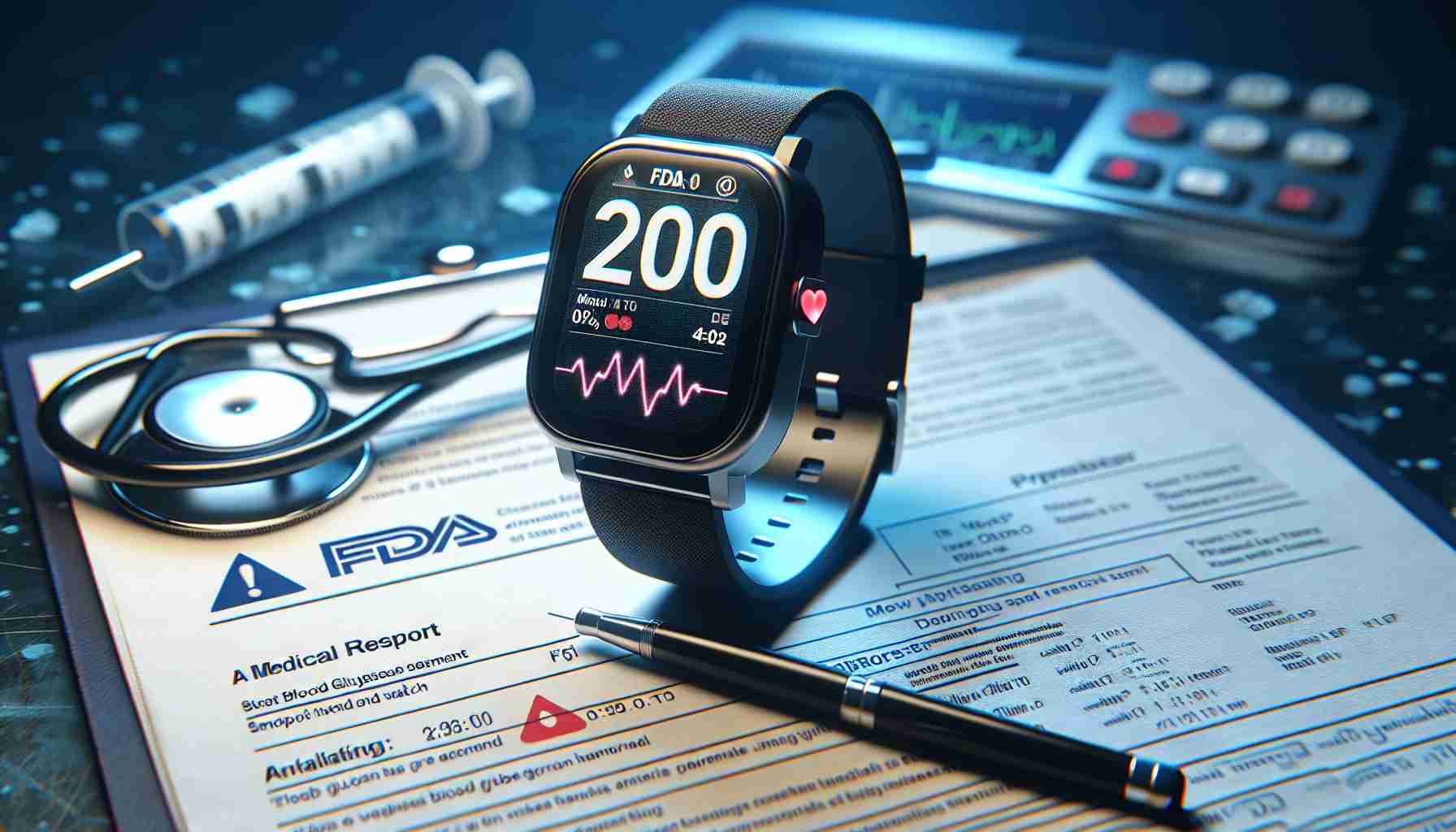Smartwatches have become an increasingly popular accessory, allowing individuals to track their fitness and monitor their health effortlessly. However, the U.S. Food and Drug Administration (FDA) has recently issued a warning regarding a certain type of smartwatch that claims to measure blood glucose levels without piercing the skin.
Smartwatches with health apps have gained recognition for their ability to provide users with instant feedback and valuable insights into their exercise routines, heart rates, and sleep patterns. By connecting to smartphones, these devices enable individuals to share their progress with friends, creating a sense of motivation and accountability when it comes to health and fitness goals.
Nevertheless, the FDA’s concern lies with certain smartwatch health apps and functions that claim to measure blood glucose levels noninvasively. In a statement, the FDA clarifies that it has not authorized or approved any smartwatch or smart ring capable of measuring or estimating blood glucose values independently.
The measurement of blood glucose levels is crucial for managing health, particularly for individuals with Type 1 or Type 2 diabetes. Currently, there are two main methods for measuring blood glucose: fingerstick testing and continuous glucose monitoring. Fingerstick testing involves obtaining a drop of blood from a finger and applying it to a test strip for a numerical reading. On the other hand, continuous glucose monitoring utilizes a small sensor placed under the skin to provide real-time data and track trends.
The FDA recommends against purchasing or using smartwatches or smart rings that claim to measure blood glucose levels. These non-FDA approved devices may yield inaccurate measurements and could potentially compromise an individual’s healthcare. For those whose medical care relies on accurate blood glucose measurements, consulting with a healthcare provider is advisable to ensure the use of appropriate FDA-authorized devices.
While smartwatches provide numerous benefits in terms of health monitoring and fitness tracking, it is important to be aware of the potential risks associated with non-FDA approved devices. Prioritizing safety and accuracy when it comes to monitoring blood glucose levels is crucial for individuals managing diabetes or other health conditions.
FAQ Section:
Q: What is the FDA warning regarding smartwatches?
A: The FDA has issued a warning about certain smartwatches that claim to measure blood glucose levels without piercing the skin.
Q: What are the benefits of smartwatches with health apps?
A: Smartwatches with health apps provide users with instant feedback and valuable insights into their exercise routines, heart rates, and sleep patterns. They also allow individuals to share their progress with friends, creating motivation and accountability for health and fitness goals.
Q: What is the FDA’s concern about smartwatch health apps?
A: The FDA is concerned about certain smartwatch health apps that claim to measure blood glucose levels noninvasively. The FDA has clarified that it has not authorized or approved any smartwatch or smart ring capable of measuring or estimating blood glucose values independently.
Q: How is blood glucose typically measured?
A: Blood glucose is typically measured through two main methods: fingerstick testing and continuous glucose monitoring. Fingerstick testing involves obtaining a drop of blood from a finger and applying it to a test strip for a numerical reading. Continuous glucose monitoring utilizes a small sensor placed under the skin to provide real-time data and track trends.
Q: Should I purchase or use smartwatches that claim to measure blood glucose levels?
A: The FDA recommends against purchasing or using smartwatches or smart rings that claim to measure blood glucose levels. These non-FDA approved devices may yield inaccurate measurements and could potentially compromise an individual’s healthcare. Consulting with a healthcare provider is advisable for accurate blood glucose measurements.
Q: What should individuals managing diabetes or other health conditions prioritize?
A: Individuals managing diabetes or other health conditions should prioritize safety and accuracy when it comes to monitoring blood glucose levels. It is important to consult with a healthcare provider and use appropriate FDA-authorized devices for reliable measurements.
Definitions:
– Smartwatches: Wrist-worn devices that offer functionalities beyond timekeeping, such as health and fitness tracking, notifications, and apps.
– Blood glucose: The amount of sugar (glucose) present in the bloodstream at any given time.
– FDA: The U.S. Food and Drug Administration, a regulatory agency responsible for protecting public health by ensuring the safety and efficacy of drugs, medical devices, food, and more.
– Noninvasively: Without requiring any form of penetration or injury to the body.
– Type 1 diabetes: A chronic condition where the pancreas produces little or no insulin, requiring daily insulin injections or the use of an insulin pump.
– Type 2 diabetes: A chronic condition where the body does not effectively use insulin, leading to high blood sugar levels. It can often be managed with lifestyle changes, oral medications, or insulin injections.
Suggested Related Links:
– FDA website
– American Diabetes Association
The source of the article is from the blog krama.net
